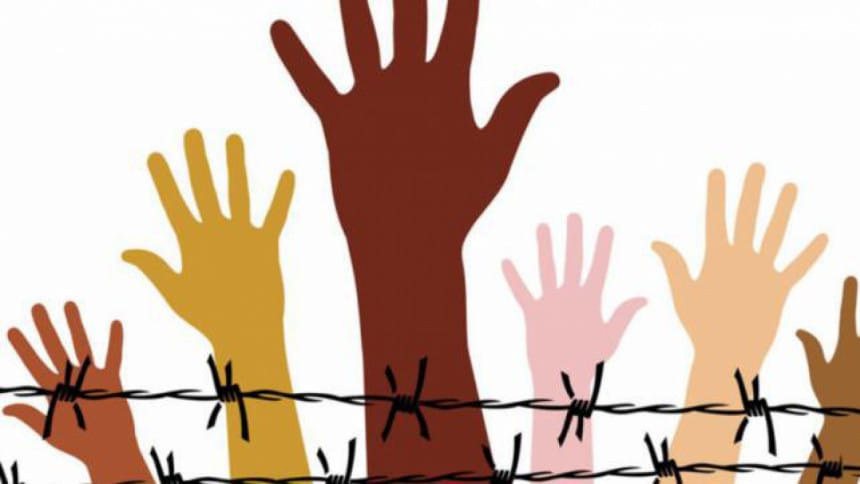Impunity breeds violence against minorities

A culture of impunity and delay in trial were among the central reasons why violence against minorities were on the rise, according to rights activists. Whereas our constitution guarantees equal rights to all citizens irrespective of race, religion and caste, the ground reality is different.
According to a recent report of the Bangladesh Mohila Oikya Parishad, more than 30,000 people from these communities became victims of at least 1,004 incidents of violence in 2017—104 were either murdered or found dead and 325 were injured. Particularly egregious was the violence against women from minority communities. According to the said report, at least 15 women were gang-raped, 18 were raped, and 11 became victims of attempted rape last year.
While minority communities continue to bear the brunt of violence, the state's inadequacy in providing them protection is glaring. In fact, complicity or the use of state actors in a few cases, to perpetrate attacks against minority groups, had been unearthed in some instances by the media in the past. In many cases, the perpetrators have gone without being identified or put on trial, while on others, the incidents were played down or ignored altogether. This has created the culture of impunity.
A country is often judged by how it treats its minorities and hence, the state should do more to protect the rights and interests of minority people, as the trend of increasing intolerance bodes well for no one and could prove to be a destabilising factor for the society in future.

 For all latest news, follow The Daily Star's Google News channel.
For all latest news, follow The Daily Star's Google News channel. 





Comments